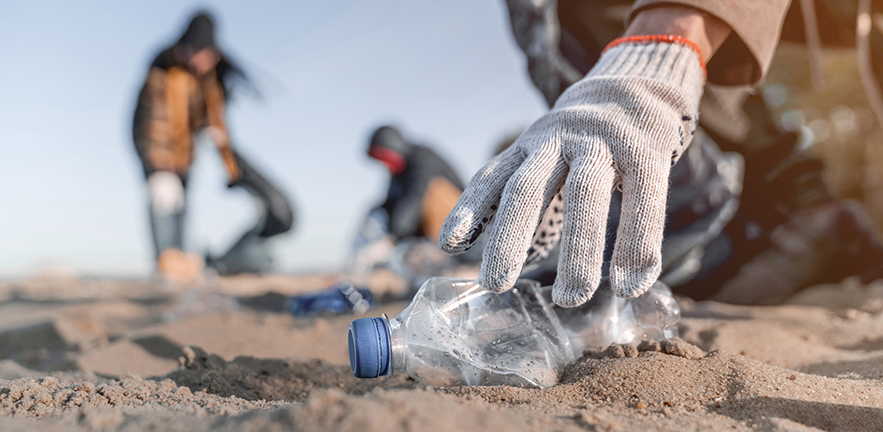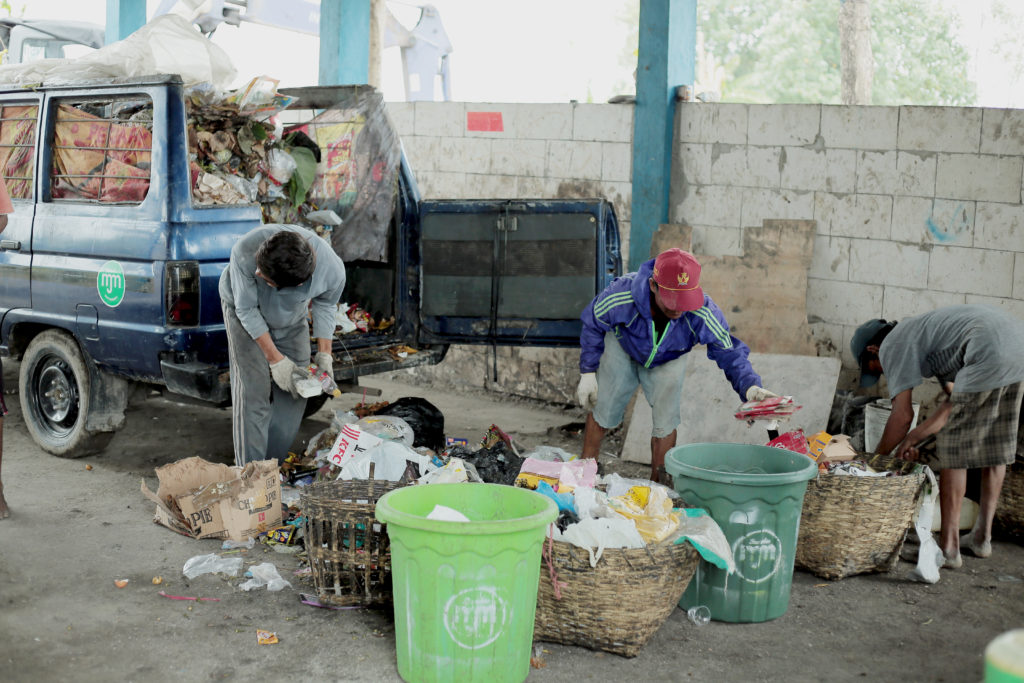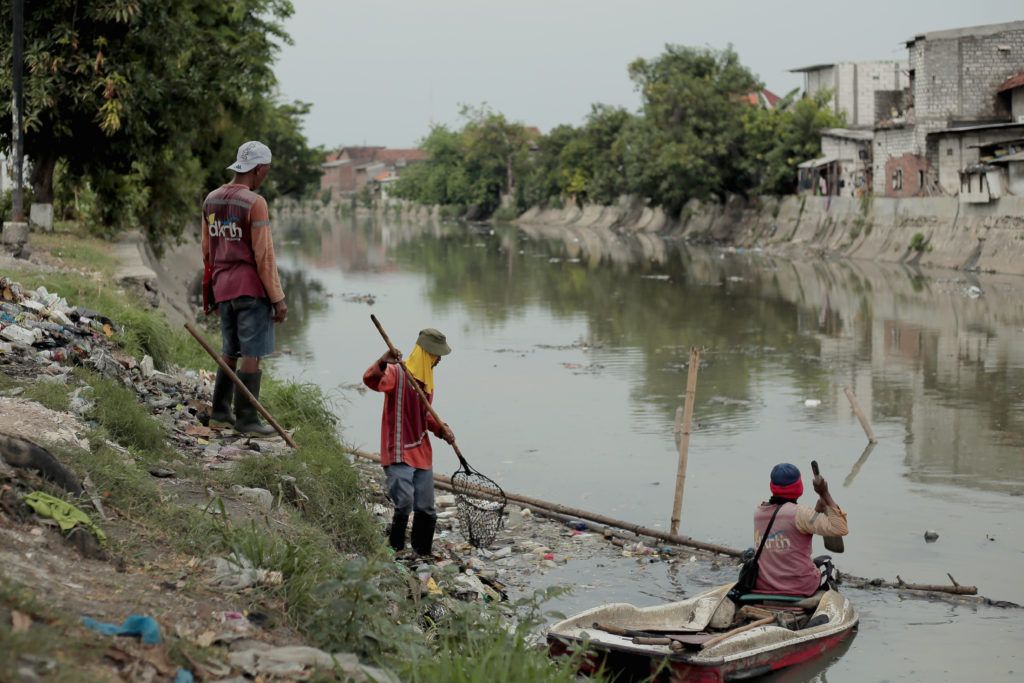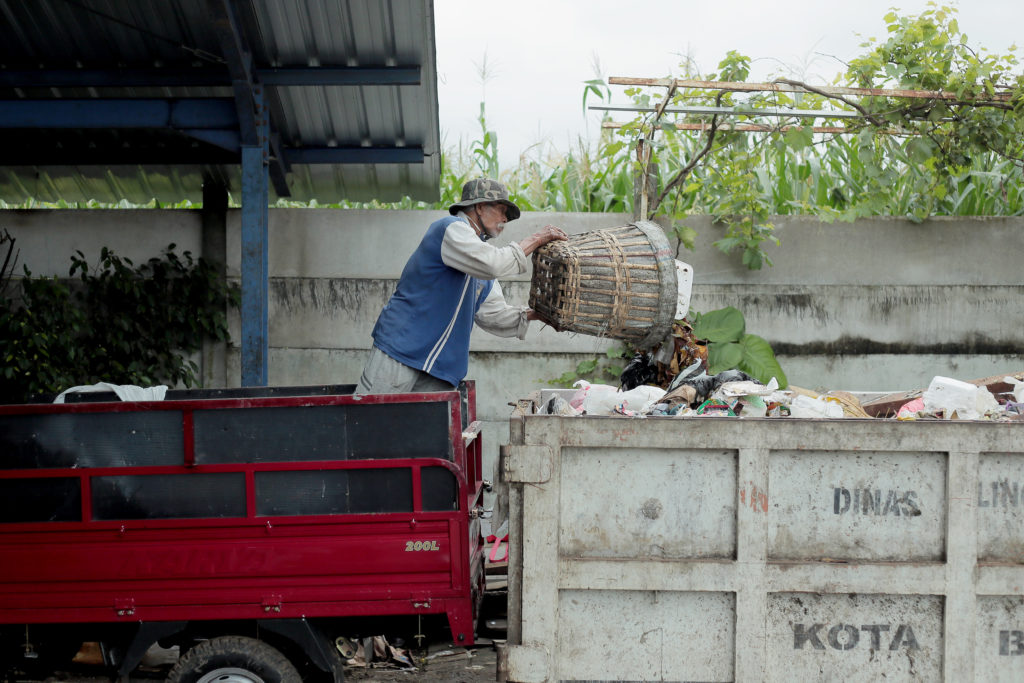Written by Klaus Oberbauer, MSt in Social Innovation alumnus and Programme Manager of Ocean Plastic Prevention, SecondMuse.

Indonesia’s collaborative communities
At SecondMuse, we build resilient economies in which all people and communities are able to contribute, benefit, and when faced with hardship, recover quickly. We thrive on community-building and seek to champion as many entrepreneurs as possible, because we believe that this is a way to shape and influence economies in their infancy. The Informal Plastic Collection Innovation Challenge implemented in Indonesia exemplifies our approach of nurturing an entrepreneurial, highly collaborative community. What made this challenge and subsequent accelerator unique was that its main indicator of success was the establishment of various forms of collaboration, rather than measuring progress on the level of the individual participants.
Plastic pollution is an emerging crisis around the world. In 2019, 61.77 million tonnes of plastic waste were mismanaged, a number that is expected to grow to 69.14 million tonnes in 2025. This waste is typically discarded in open dumps, leaks into the environment or is burnt openly. For example, eight million tonnes of plastic waste leak into oceans every year. These inappropriate disposal methods create severe issues leading annually to the deaths of up to one million people.
At the Ocean Plastic Prevention Accelerator (OPPA) and The Incubation Network – both implemented by SecondMuse – we are working to solve this problem by developing a collaborative network for social innovation to strengthen and improve how waste actors relate to each other.
One of the major reasons for plastic pollution is the low collection rate of plastic waste. In Indonesia, 61% of the country’s 6.8 million annual tonnes of plastic waste remain uncollected, due to a lack of infrastructure and inefficient collection mechanisms. Similar to many developing economies, informal actors, including waste pickers, junk shops, aggregators, and other informal actors, represent the backbone for the collection systems that do exist. They are responsible for collecting a total of one million tonnes of plastic waste every year, including almost all plastic waste that feeds into the local recycling industry. Yet, the role of the informal sector usually goes unrecognised. Informal workers face unsafe working conditions, are unable to access social services, and receive low pay. Informal sector activities are also lacking transparency which makes it challenging for anyone not familiar with the work of the informal sector to understand just how important its role really is.
The struggle of the informal waste sector
The precarious situation of informal workers has been further jeopardised during the COVID-19 pandemic. Many waste processing facilities have chosen to delay their operations to reduce the risk of spreading the virus through contaminated waste materials, leading to dramatic changes in the livelihoods of workers. As a result, the revenue of waste facilities has dropped significantly due to government-enforced restrictions on their operations. Suhartono (46), a waste picker supported by OPPA, shared that his daily income had declined drastically during the pandemic. “Before COVID-19, I received 200,000 rupiahs for each waste delivery, and now the amount I receive for the same quantity is very uncertain. Typically, it’s 100,000, and occasionally 120,000.”
The pandemic drastically exposed the vulnerability of informal waste workers and the urgent need to support their well-being. Additionally, informal actors should be supported, due to the importance of their role in waste management systems. According to the International Labor Organization (ILO), only four million of the nine to 14 million workers in the waste management sector worldwide are formally employed. Therefore, improving waste management invariably means finding ways to improve the activities of the informal sector. Yet, the sector is often overlooked and not the first priority when thinking about solutions, because missing awareness about its importance, its lack of transparency, and a variety of other reasons.

Building innovative, cross-sector partnerships
Due to the urgent need of supporting informal waste management, OPPA and The Incubation Network have made it a priority to learn how to meaningfully integrate this type of work in potential solutions. Recently, OPPA had the pleasure to work with social innovators that strive to support the informal sector. In order to help them make the right connections that enable their work to thrive and expand, we implemented the Informal Plastic Collection Innovation Challenge (IPCIC) in partnership with the World Economic Forum. The programme included in-depth research that mapped the main points of leverage for the integration of informal actors into formal systems, using a methodology inspired by keystone species. These keystones were identified as (a) data about the informal sector, (b) events that promote collaboration, (c) interest among entrepreneurs in waste-related innovations, (d) market segmentation according to types of waste, (e) long-term agreements between buyers and sellers of plastic for recycling, (f) regulatory enforcement of waste management policies, and (g) favourability of existing regulations towards the informal sector. We are happy to share these insights and further details with like-minded organisations in the waste management sector, and we hope these results will inspire further action.
For the development of IPCIC, research insights were used to identify innovators across 3 categories: better supply chain ethics, traceability and segmentation; better access to knowledge and digital skills for informal waste workers; and better visibility of the informal sector. IPCIC was different from other innovation challenges and accelerators, as it focused on establishing collaboration between leading waste management actors and participating innovators for the improvement of the informal sector.
IPCIC facilitated the establishment of 11 partnerships. An example of such a partnership is between IPCIC participant Duitin and the disaster and climate change agency of Nahdlatul Utama (LPBI NU), a large Islamic charitable organisation. Duitin is a reverse logistics app that allows anyone to schedule waste pickups – similar to a reverse ride hailing or delivery app. For every delivery, the app user is rewarded with monetary rewards. The cooperation with LPBI NU allows the direction of these cash rewards towards social or religious causes. Due to the large membership base of Nahdlatul Utama (approx. 90 million members), this partnership will drastically increase on-ground waste collection, encouraging behavioural change in a diverse demographic. Another partnership brought together Empower, a technology-based startup from Norway, with Geledek, a traditional, small-sized waste collection enterprise in East Java. Together, they are building a pilot project for plastic credits which represents the first step for Empower to enter the Indonesian market.
To enable these partnerships, the IPCIC team took lessons from SecondMuse’s experience of building collaborative innovation ecosystems to build a programme that strategically connected participants and stakeholders and built their capacity for collaboration. We believe that such partnerships are the key to overcoming the limitations of scale many social innovators face when expanding beyond their initial communities. By working together with other community leaders, they can effectively and quickly enter markets and environments that are unfamiliar to them.
OPPA and the Informal Plastic Collection Innovation Challenge are supported by The Incubation Network – a regional initiative powered by SecondMuse, The Circulate Initiative (TCI), with support from Alliance to End Plastic Waste (AEPW), and Global Affairs Canada (GAC).




Leave a Reply